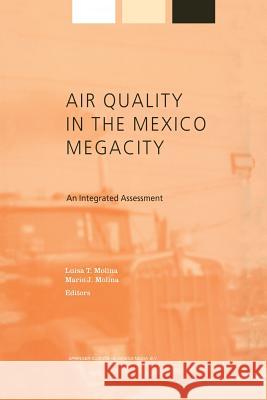Air Quality in the Mexico Megacity: An Integrated Assessment » książka
Air Quality in the Mexico Megacity: An Integrated Assessment
ISBN-13: 9781402005077 / Angielski / Miękka / 2002 / 384 str.
The quality of the air we breathe is fundamental to the quality of life for the growing millions of people living in the world's burgeoning megacities. In this book, experts in atmospheric sciences, human health, economics, social and political sciences contribute to an integrated assessment of the complex elements needed to structure air quality policy in the 21st century. The analysis is developed through a case study of the Mexico City Metropolitan Area - one of the world's largest megacities in which air pollution grew unchecked for decades. The international research team is led by Luisa T. and Mario J. Molina, Nobel Laureate in Chemistry. Improvements in Mexico City's air quality in the last decade testifies to the power of determined and enlightened policy making, and throws into relief the tough problems that remain to be solved.
The volume's first six chapters, including the contributions of over 50 distinguished scholars from Mexico and the US, outline the fundamental areas of knowledge policy makers must accommodate. The message is that only good science and well-chosen technologies can direct the way to corrective regulatory measures; but without strong commitment from government, no amount of science or technology can help.
In presenting what is known about the causes and consequences of air pollution in this megacity, the authors highlight what needs to be done. Many key areas of measurement and methodology for consistently and accurately assessing air quality and its effects still require refinement.
The volume concludes with an extensive list of policy recommendations, emphasizing the value of integrated assessment and a long-term perspective. Intended for the guidance of policy makers in the Mexico Megacity, these recommendations form a provocative challenge to the leadership of other megacities with looming air pollution issues.
While each city - its problems, resources, and perspectives - is unique, the need for an integrated assessment of complex environmental problems is the same. The case study presented in this book demonstrates ways to work toward the comprehensive knowledge needed to build robust policy.











